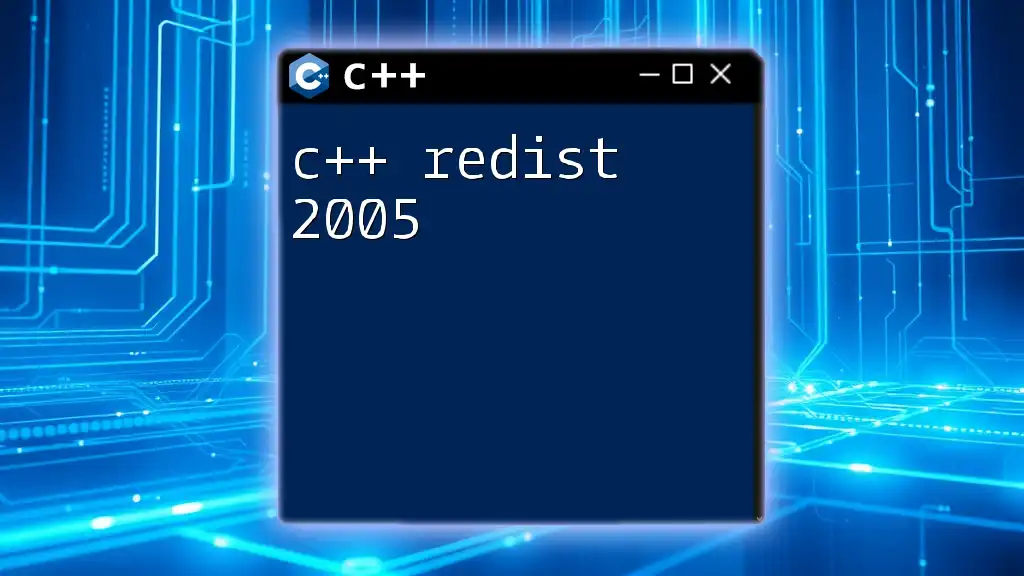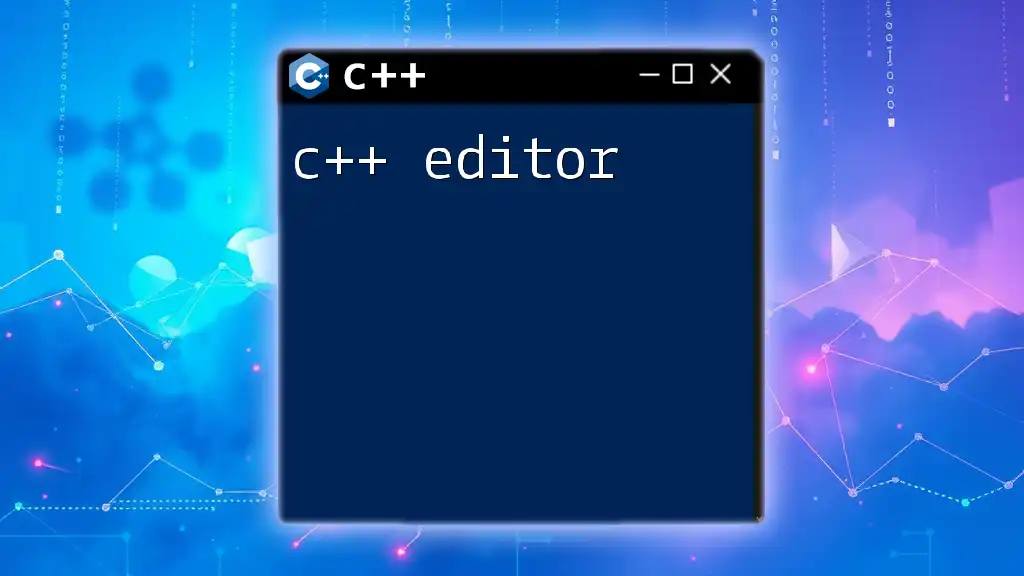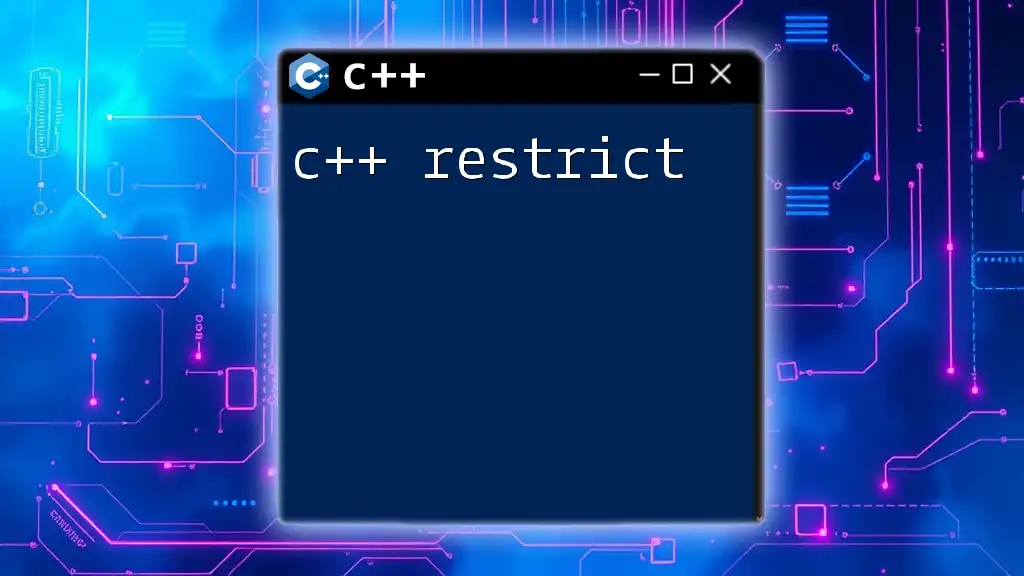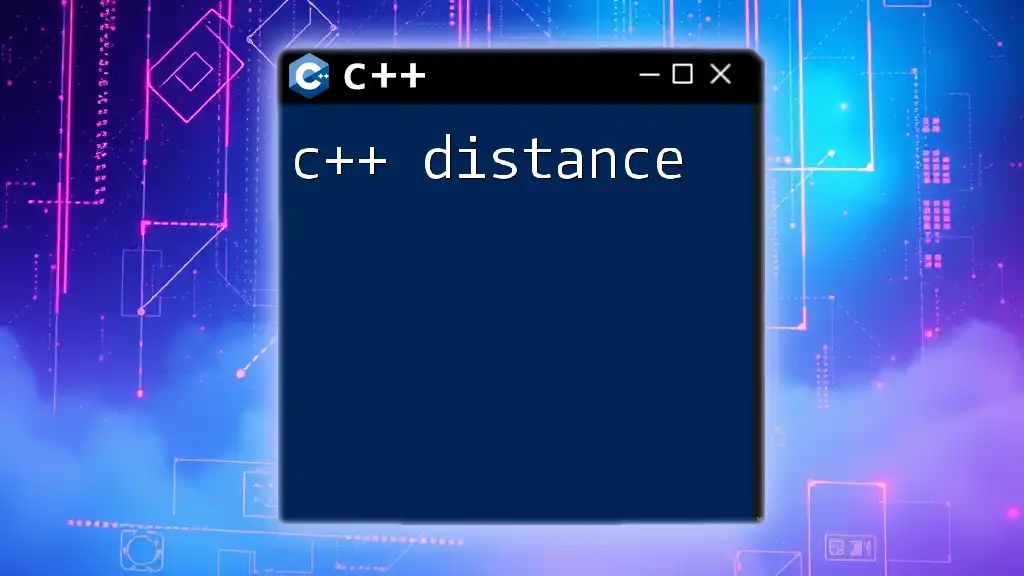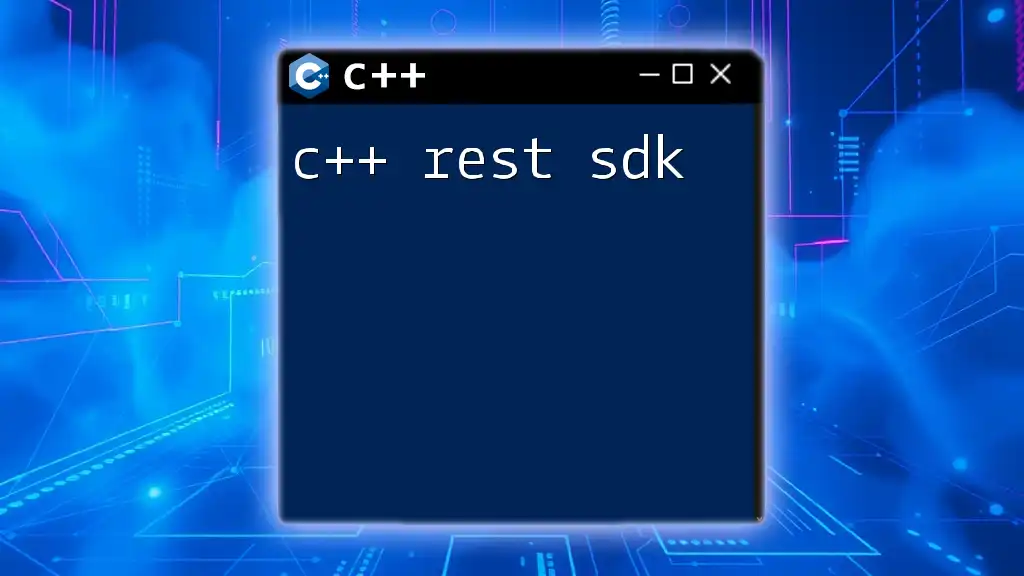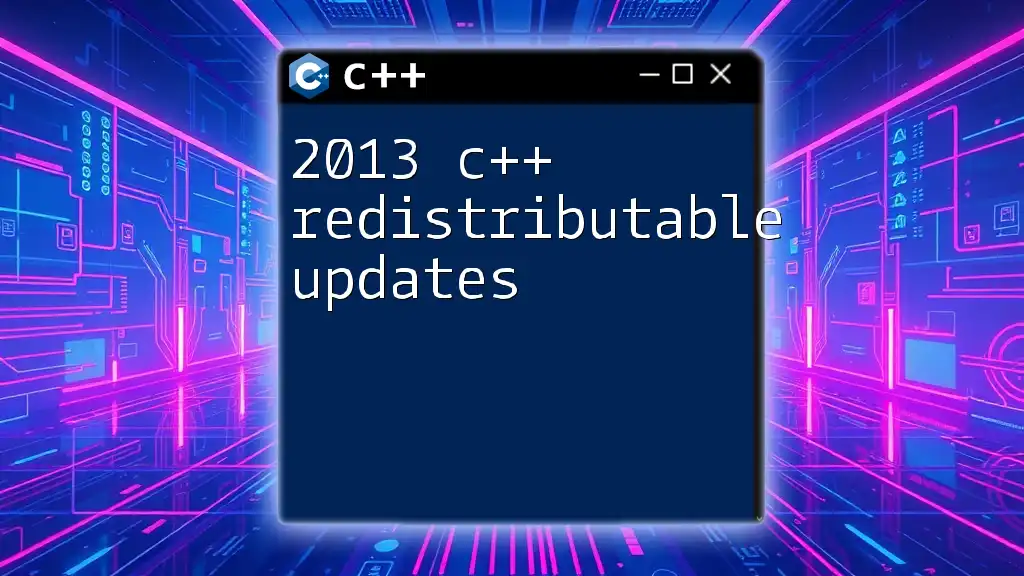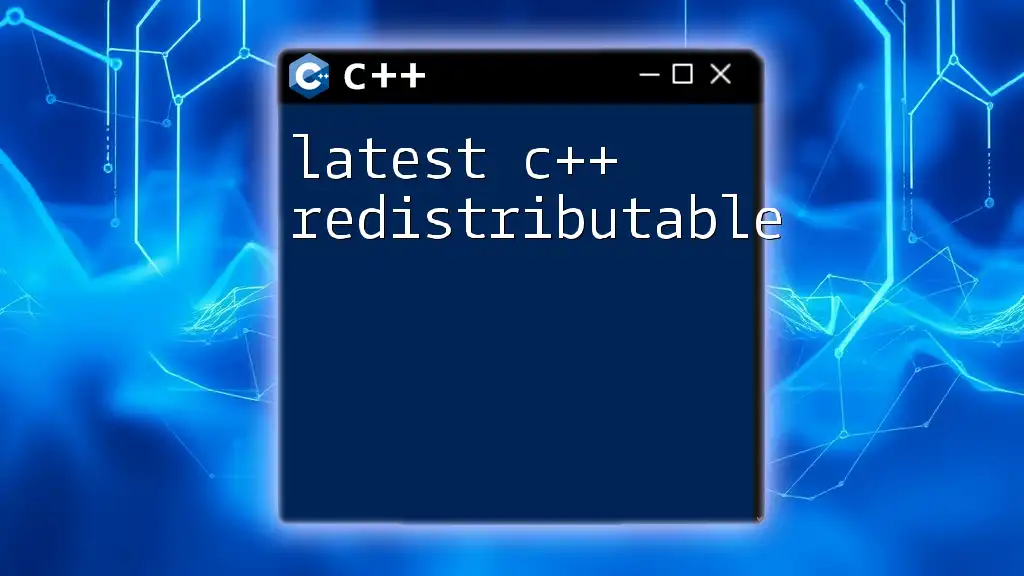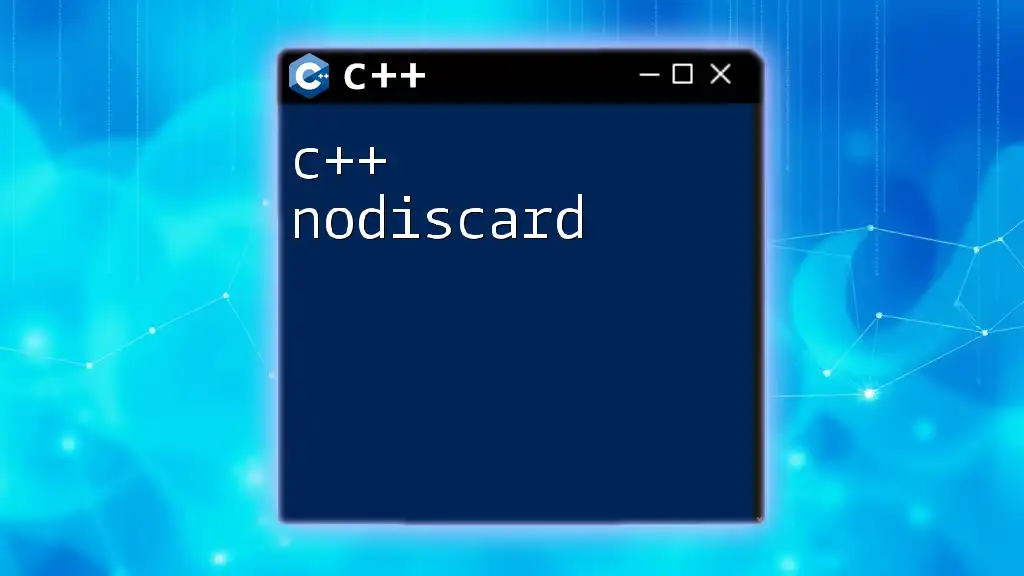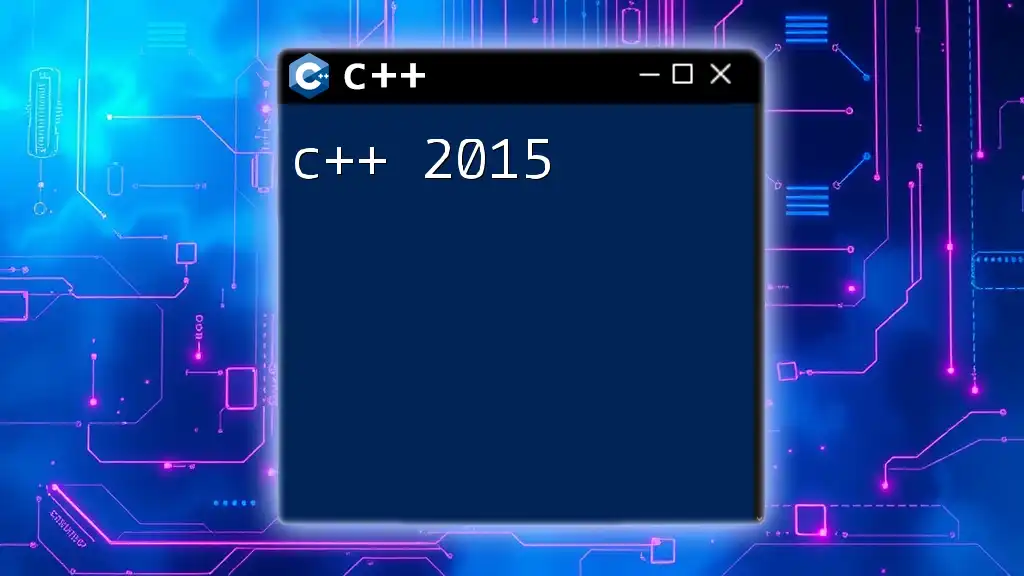C++ Redistributable 2005 is a package that installs the components required to run applications developed with Visual C++ 2005, ensuring that the necessary libraries are available on the system.
Here's a simple example of a C++ program that utilizes the standard input and output:
#include <iostream>
int main() {
std::cout << "Hello, World!" << std::endl;
return 0;
}
What is C++ Redistributable?
C++ Redistributable packages contain the necessary runtime components that applications built with Visual C++ require to function correctly on a user's machine. These components include libraries needed to run applications developed with C++ and ensure that they can use features like the Standard Template Library (STL) and multithreading.
Importance in software development for dependency management: The C++ Redistributable streamlines the process of application deployment. Instead of developers needing to package all required libraries with their applications, the redistributable allows them to access pre-installed components on the user's system. This approach not only minimizes the size of the application package but also ensures that updates to libraries can be managed centrally.

Visual C++ 2005 Redistributable Overview
Key Features
Visual C++ 2005 Redistributable includes significant improvements in performance, security, and the overall development experience. This version introduced the following key features:
- Enhanced Debugging: It provides better debugging tools that allow developers to trace code execution more effectively.
- Improved Security: New security features were implemented, such as buffer overflow checks.
- Support for C++ Libraries: Enhancements to the STL and other libraries offer developers a more robust toolkit for application development.
Supported Platforms
The VC++ 2005 Redistributable is compatible with several Windows operating systems, including:
- Windows XP (32-bit and 64-bit)
- Windows Vista (32-bit and 64-bit)
- Windows 7 (32-bit and 64-bit)
- Windows Server 2003
Understanding which operating systems are supported helps in targeting user bases effectively, ensuring that applications can run smoothly across various Windows environments.

Installing C++ Redistributable 2005
Pre-requisites
Before installing the C++ Redistributable 2005, ensure that the target system meets the basic requirements:
- A supported version of Windows, as mentioned earlier.
- Sufficient disk space for installation.
- Administrative privileges to perform installation.
Step-by-step Installation Guide
Downloading the Redistributable To download the Visual C++ 2005 Redistributable, visit the official Microsoft download page. Make sure to choose the correct version according to your system architecture—32-bit or 64-bit.
Installation Process
- Run the downloaded executable file.
- Follow the prompts: The installer will guide you through the installation process.
- Accept the License Agreement: Read through and click “I Accept” to proceed.
- Complete the Installation: Once installation is finished, you’ll receive a confirmation message.
Verifying Installation
After installation, it’s vital to confirm that the redistributable is correctly installed.
Using Windows Command Prompt You can check the installed versions of the C++ Redistributable using the Command Prompt. Simply type the following command:
wmic product get name
This lists all installed programs. Look for entries related to "Microsoft Visual C++ 2005 Redistributable".
Checking through Control Panel Another method to verify installation is:
- Open Control Panel.
- Navigate to "Programs and Features."
- Scroll through the list to find “Microsoft Visual C++ 2005 Redistributable.”
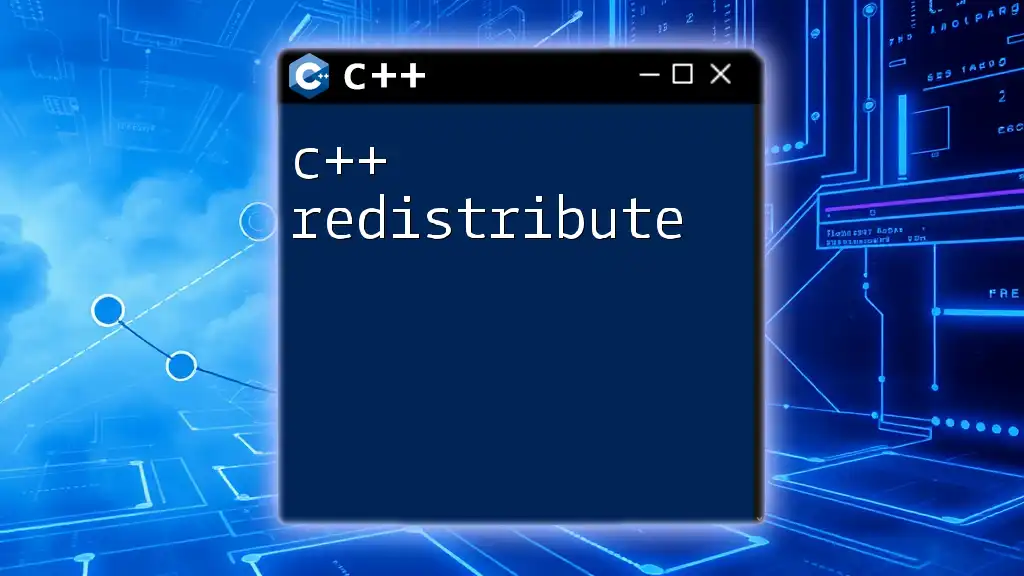
Common Issues and Troubleshooting
Installation Errors
Some common installation errors include:
- Error 1935: This may occur due to issues with Windows Installer. Run the System File Checker (SFC) to check for corrupted files.
- Cannot Find the File Specified: Ensure that the installer executable is not blocked by antivirus software.
Possible solutions:
- Restart the installer after fixing any underlying issues.
- Ensure that your Windows system is fully updated.
Runtime Issues
Runtime errors may arise if the application you are trying to run requires the C++ Redistributable and it is not present or outdated. Common runtime issues include:
- Application crashes or failure to start.
- Error messages stating missing DLL files related to the C++ Runtime.
How to troubleshoot these issues:
- Reinstall the Visual C++ 2005 Redistributable.
- Check for any application-specific updates or patches that could address known issues.
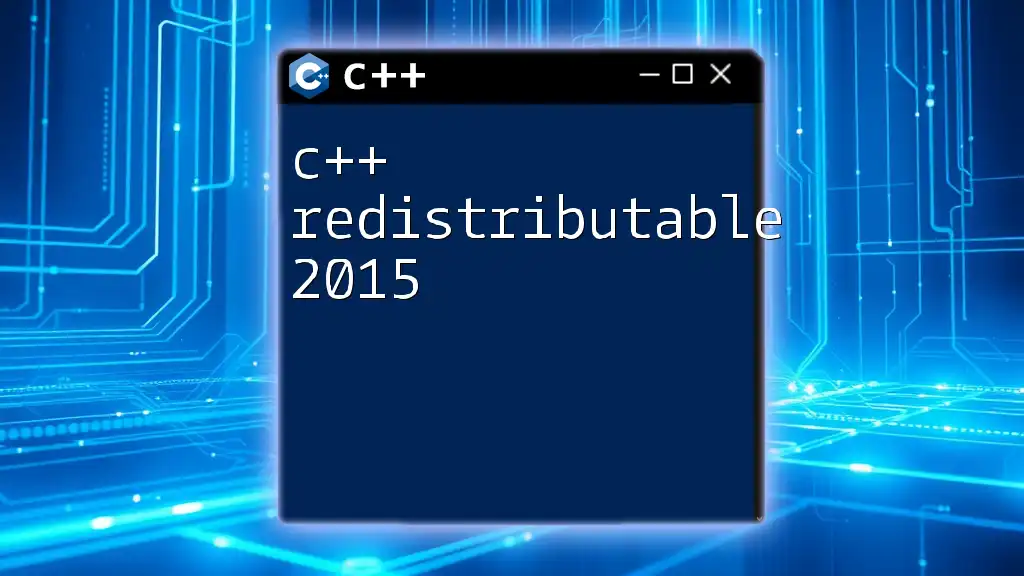
Examples of Applications Requiring Visual C++ 2005
Popular Software
Numerous high-profile applications rely on C++ Redistributable 2005. Some examples include:
- Microsoft Office: Various components rely on VC++ libraries for smooth functionality.
- Adobe Products: Many Adobe applications depend on the Visual C++ suite for execution.
Development Examples
Consider a simple C++ application that outputs a message. The code snippet below illustrates the usage of basic libraries that the redistributable supports:
#include <iostream>
int main() {
std::cout << "Hello, World!" << std::endl;
return 0;
}
Without the C++ Redistributable, running this code may result in errors indicating that necessary libraries are missing. The redistributable ensures these libraries are available for the program to function correctly.
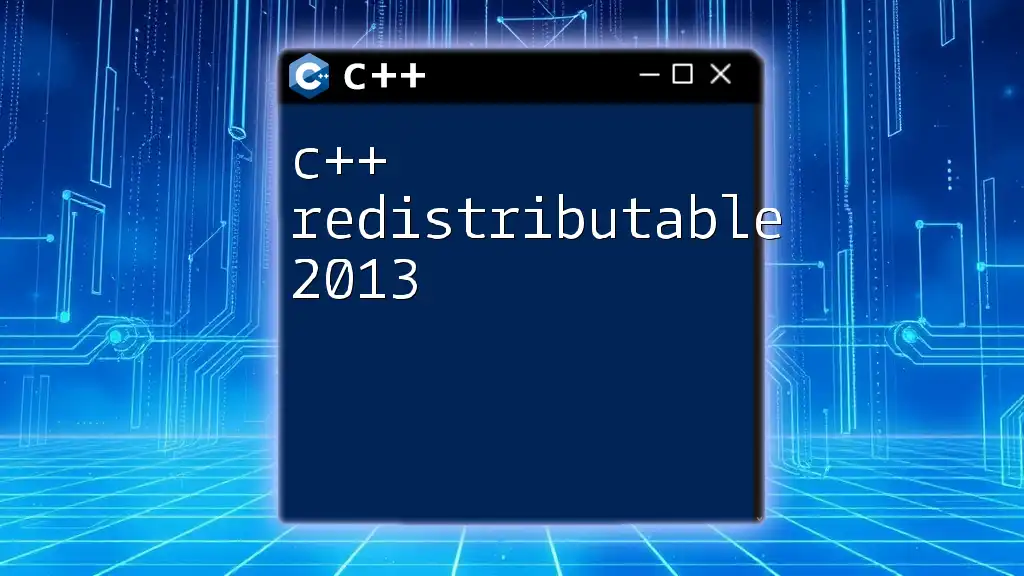
Conclusion
In summary, understanding the C++ Redistributable 2005 is crucial for developers and users alike. It streamlines application deployment by managing dependencies and ensuring applications run smoothly across different environments. Keeping redistributables updated is essential for both developers and end-users to ensure compatibility and optimal performance.
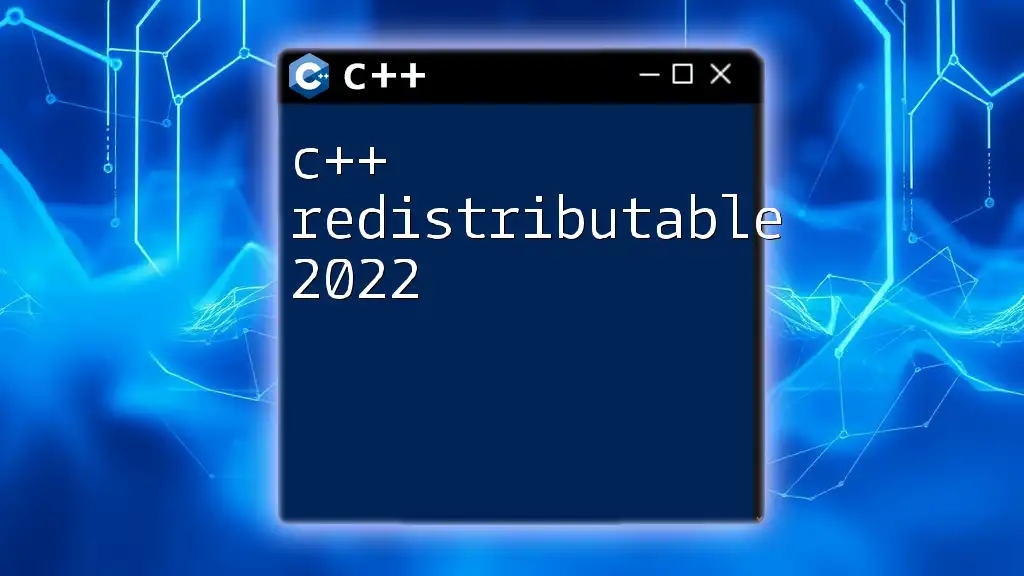
Call to Action
Stay tuned for more insightful articles that delve deeper into C++ commands and programming tips. Subscribe to our newsletter to keep updated on the latest in C++ development!

